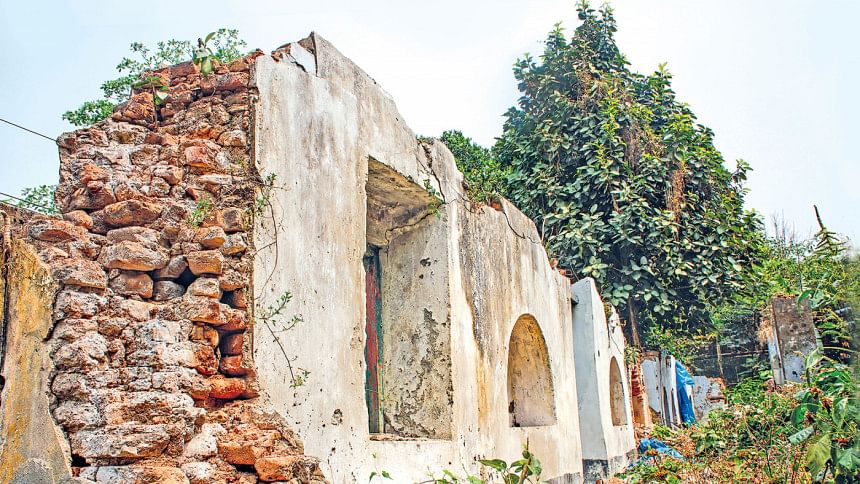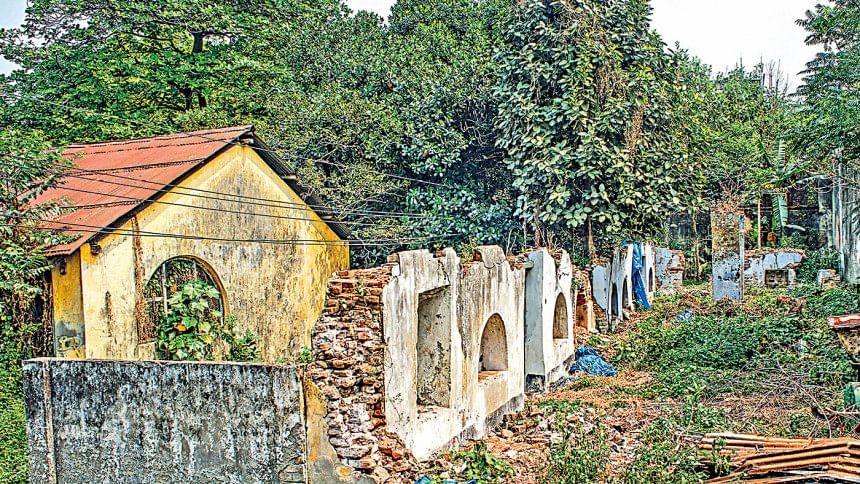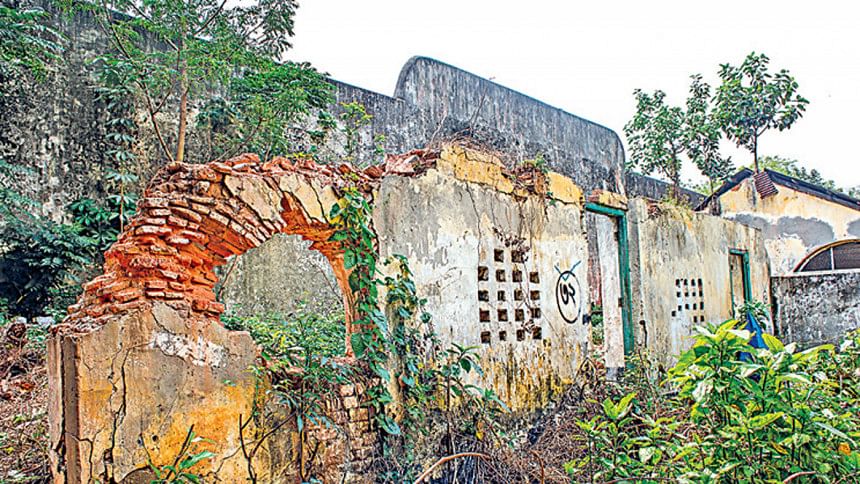The mystery of Chawkbazar's lost ARTEFACTS

Years after some 30-40 ancient artefacts were discovered from inside the old central jail compound in Old Dhaka's Chawkbazar area, information regarding the total number of artefacts at the site or their age is yet to be ascertained due to an internal issue between the Department of Archaeology (DoA) and the excavation team.
The artefacts include ancient coins, cowry, pieces of clay pots, terracotta balls and more, said sources at the DoA.
In 2016, a government technical committee appointed Prof Sufi Mostafizur Rahman, of Jahangirnagar University's archaeology department, as supervisor of the excavation site. However, despite repeated requests from the Ministry of Cultural Affairs and the DoA, he is yet to submit his report.

Earlier on April 11 this year, The Daily Star ran a repot tilted 'Chawkbazar Jail: Ruins offer trip deep into Old Dhaka history'. Following the report, authorities concerned started pressurising Prof Mustafizur to submit his report.
Contacted, the professor said the report will be submitted, but could not say when.
The Chawkbazar fort was constructed during the Sultanate rule between the 14th and 16th centuries. Eventually, the fort was turned into a mental asylum 1819 and a prison in 1836. The asylum was shut down after some years, but the prison came to be the Dhaka Central Jail and remained in operation till 45 years after the country's independence.
After July 2016, inmates were shifted to the newly built jail in Keraniganj, as the government took initiatives to preserve this historic site.
The same year, the government formed the technical committee with representatives from the home ministry, prison authorities and DoA, along with architects, planners, and historians. It is now overseeing the work of converting the old prison into an urban oasis.
It was this committee that proposed the name of Prof Sufi Mostafizur Rahman as the supervisor of the excavation, following which the jail authorities appointed him.
On June 11, 2017, the DoA gave approval to Home Ministry to conduct excavation at the site, imposing three conditions, which included that the excavation work must be conducted in the presence of a representative of the department.
The department proceeded to assign Razia Sultana, former assistant custodian of Lalbagh Fort Museum, as its representative.
Interestingly, the excavation team led by Prof Sufi completed the excavation works by July 24, 2017, the same day that Razi Sultana joined the team.
After this, Razi in a letter to her superiors claimed that she was not fully aware about the numbers of artefacts that were found in the site as the excavation work was completed before she joined.
Following the letter, officials of the Department of Archeology tried to visit the site to scrutinise the artefacts, but they were denied access by the jail authorities.
Later, in December 2019, the department's director general (DG) sent a letter to the secretary of the Ministry of Cultural Affairs explaining the overall situation.
On the basis of the letter, the cultural affairs secretary in January 2020 wrote to the secretary of the Home Ministry, citing that the excavation team did not comply with the conditions of excavation.

Later, the ministry asked the jail authorities to take necessary measures to publish the excavation report regarding the ancient artefacts found at the site.
In response, jail authorities sent a letter to the DoA, seeking representatives to prepare the list of artefacts.
The department appointed two representatives. Of them, one was Md Tanjilur Rahman, assistant custodian of Lalbagh Fort Museum, who was made a full-time representative, while Halima Afroz, custodian of Lalbagh Fort Museum, was made a part-time representative.
Contacted, Tanjilur said he along with the excavation team visited the excavation site two or three times in July and August. They took some photographs of the artefacts. Now, they are in the process of studying the artefacts.
Asked about the numbers of artefacts at the site, he asked The Daily Star to speak to Halima Afroz.
Contacted, Halima declined to comment on the issue and suggested this correspondent talk to Rakhi Roy, Dhaka Divisional regional director of the DoA.
However, despite multiple attempts, this correspondent could not reach Rakhi—she did not respond to the calls or the text messages left for her.
Contacted, technical committee member and eminent historian Professor Muntasir Mamun said, "Earlier, we had decided to showcase the artefacts found in the old jail compound. We requested the jail authorities several times to publish the excavation report, but they said they were still trying to collect it." He opined the report should be published immediately for the sake of public interest.
Another member of the technical committee eminent architect Prof Abu Sayeed M Ahmed said, "We cannot devise the next plan of action on this issue in absence of the report."
The project's director, Home Ministry Joint Secretary Md Ali Reza Siddiquee, could not be contacted over phone.
Contacted, Brigadier General ASM Anisul Haque, Inspector General of Prisons, said he had only recently joined his post and as such was unable to make a comment on the issue. Earlier in April this year, Prof Sufi told The Daily Star that he conducted the excavation for around three months at four spots in the prison between 2017 and 2018.
"I have got some significant ancient archaeological evidence there. But the technical committee asked me not to publish my findings. They are even barring me from working there," he had said.
That time, this correspondent contacted Prof Muntasir Mamun, who denied the allegations and said Prof Sufi had personally published a brochure containing information on the excavation.
Prof Sufi wanted to hold a press conference to disclose the findings without taking the consent of the technical committee, he added.
"We repeatedly asked him [Sufi] to submit a report with the findings before the technical committee. But it is a matter of great regret that he did not do it," said Prof Muntasir Mamun in April this year.

 For all latest news, follow The Daily Star's Google News channel.
For all latest news, follow The Daily Star's Google News channel. 



Comments